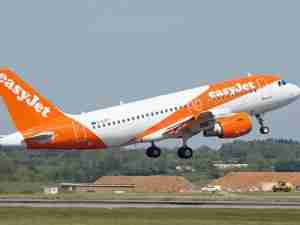By Peter A. Buxbaum, AJOT
The United States and the European Union announced a tentative open skies agreement on March 5, 2007. It is tentative because the agreement still requires approval by officials in Washington and Brussels. A US-EU open skies accord was once reached in November 2005, but was never approved.
The latest development represented something of a turnabout because negotiations over the agreement were thought to have broken off toward the end of last year, largely because of the inability of the Bush administration to change the rules on the ownership and control of US airlines. A proposed Department of Transportation rule would have loosened strictures on foreigners owning shares in US airlines. But strident opposition in Congress pressured DOT to withdraw the proposed rule. With that, the open skies negotiations were presumed to be on hold.
The now-defunct DOT rule would have redefined the legislative requirement that US airlines be under the "actual control" of US citizens. Current US law requires that two-thirds of directors and officers of US airlines be US citizens and that 75% of voting shares be held by US citizens. The proposed DOT rule would have required that only decisions involving participation in the Civil Reserve Air Fleet, which diverts civilian aircraft for military transport when necessary, be under the control of US citizens.
As it tuned out, the Europeans were not as insistent on reform of the airline ownership rule as originally thought. Instead, the European Commission took a new negotiating position, instructing its team to exact additional concessions out of the US in exchange for dropping airline ownership reform, according to European Commission documents.
The Europeans did receive concessions, although their significance is a matter of debate. Meanwhile, air forwarders in the US are enthusiastic over the benefits the agreement provides to US shippers.
On the issue of US airline ownership, the original 2005 accord was appended with a protocol outlining rights in the area of ownership, investment and control of US airlines by EU investors and acknowledging the possibility for the EU to restrict US investments in European airlines.
These additions, according to John Byerly, Deputy Assistant Secretary of State for Transportation Affairs, are 'unreciprocated, unilateral enrichments of the agreement to the benefit solely of EU airlines and investors.' Byerly also noted that the protocol stipulates that specified levels of EU stock ownership under 50% will not be deemed 'control' and that 'ownership of 50% or more of total equity is not automatically presumed to constitute control.' The US Department of Transportation emphasized in a statement that the content of the protocol complies with current US law regarding airline ownership.
But Martin Broughton, chairman of British Airways, in a speech delivered in London and published on the Internet, castigated the European negotiators, characterizing the accord as a 'US-model open skies agreement.'
'What we in BA strongly support is an 'open' aviation area' based on the model of the EU internal aviation market,' he added. 'The key difference is the issue of ownership and control. Ownership is worthless without the commensurate level of control. The negotiators creatively scraped the barrel to include items such as the existing US policy on ownership limits.'
Additional elements added to the November 2005 agreement included recognizing European airlines as "Community air carriers;" allowing such carriers to fly between any point in the EU to any point in the US, without regard to the country of origin of the airline; recognizing the possibility for European carriers to operate flights beyond the European Union and the United States to third countries; and recognizing the possibility for EU airlines to operate all-cargo flights beyond the United States to third countries, without a requirement that the service start










